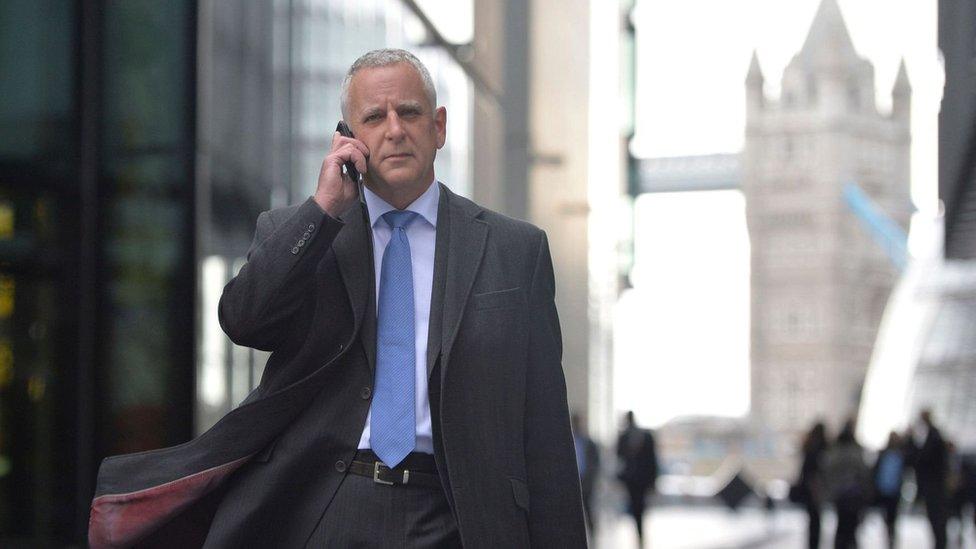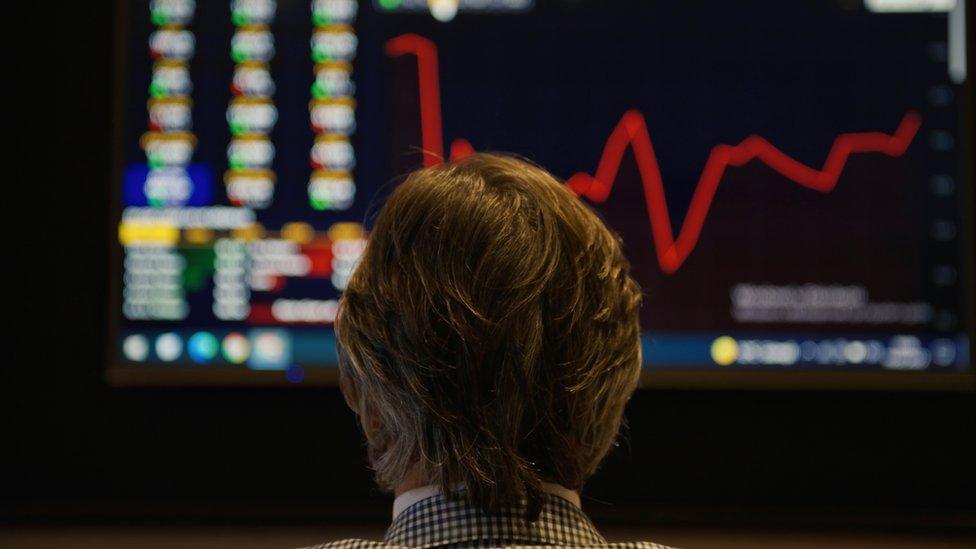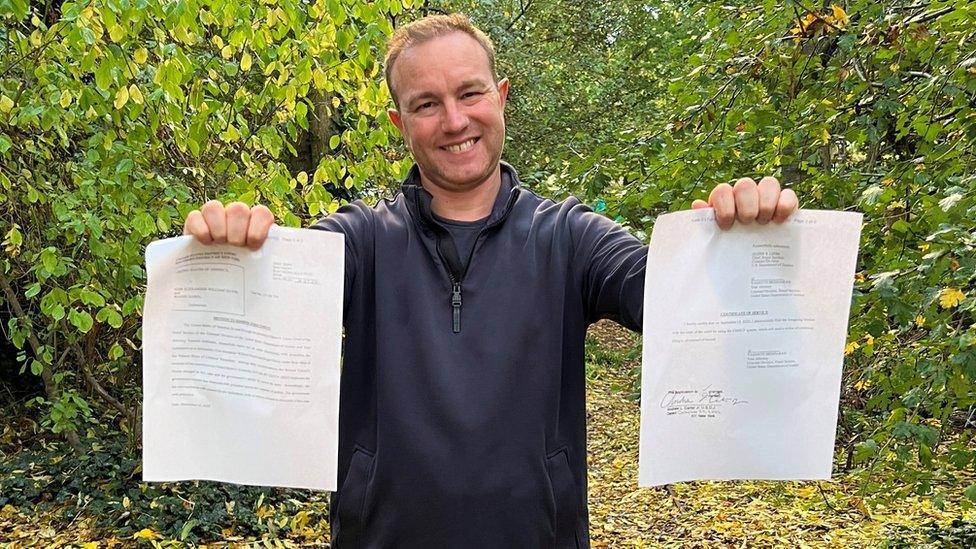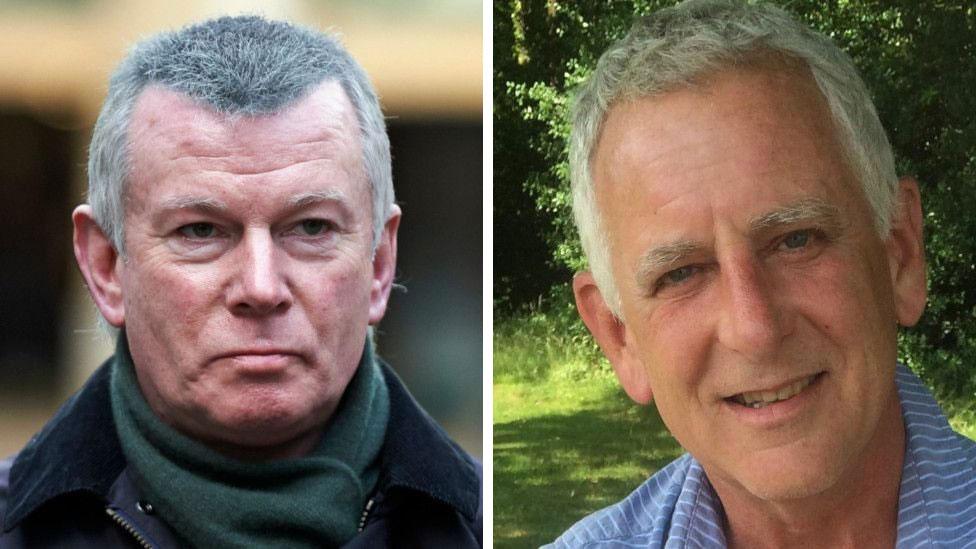Interest rate 'rigging' evidence 'covered up' by banks
- Published

UK and US regulators were told of a state-led drive to "rig" interest rates in the 2008 financial crisis, but covered it up, evidence indicates.
Documents suggest lenders sharply dropped their interest-rate estimates after pressure from central banks.
Evidence was not shown to juries at the time when bankers were jailed for smaller-scale interest-rate "rigging".
Regulators said they had followed disclosure rules, declined to comment or in one case rebutted the claims.
Some evidence has previously emerged of Bank of England and UK government involvement in manipulation of interest rates. But the evidence indicating it was part of a broader, international drive not just by the UK but by central banks across the western world to push key interest rates down in October 2008 has never been published before.
The evidence indicates that in October 2008, central banks including the Bank of England, the Banque de France, the European Central Bank, Banca d'Italia, Banco de Espana and the Federal Reserve Bank of New York intervened on a large scale in the setting of Libor and Euribor.
At the height of the 2008 financial crisis, when bank lending had almost ground to a halt, central banks around the world urged calm. But my investigation reveals evidence that, behind the scenes, they were pulling levers to restore calm artificially - measures which would later be ruled to be against the law in the UK.
Those measures related to benchmark interest rates called Libor and Euribor, which track how much it costs banks to borrow money from each other. As such they are a big influence on the cost of mortgages and other loans. The more confidence investors had in the borrowing bank, the lower the rate. The higher the rate, the more doubts the market had about the viability of that bank.
In October 2008 there was an international drive, involving the central banks of the UK, US and eurozone, to get Libor down and restore a sense of calm to the market, at a time when banks lending had almost ground to a halt.
In November 2010, investigating agencies from the US Federal Bureau of Investigation (FBI) to the UK financial regulator were directly informed of this - but they have since kept it secret from Parliament, Congress and the public.
Andrew Tyrie, who chaired the UK Treasury Committee of MPs when it enquired into Libor in 2012, told the BBC that he believed Parliament "appears to have been misled".
"The evidence that Mr Verity has unearthed strongly suggests that the committee's inquiry into the Libor scandal was not told the whole truth.
"The public rely on Parliament to get to the truth. This case illustrates why Parliament should bolster its information-gathering powers with more effective sanctions against those who provide less than the full picture. Parliament appears to have been misled and, if that's the case, should not let it rest."
I uncovered extracts from the transcript of an interview given by Barclays cash trader Peter Johnson whilst researching a book I have written about the secret history of the interest rate rigging scandal.
The interview was given on 19 November 2010 to the US Department of Justice, the FBI, other US regulators, and the UK's financial regulator, then called the Financial Services Authority (FSA).

While 37 traders and brokers have been prosecuted by the US Department of Justice and the UK's Serious Fraud Office, jurors in nine criminal trials for much smaller-scale interest rate "rigging" held in London and New York between 2015 and 2019 were never shown this evidence.
Backed up and supplemented by published data, the suppressed evidence indicates that in October 2008, central banks intervened on a large scale in the setting of Libor and Euribor.
Further suppressed evidence indicates that the UK government, including 10 Downing Street, was also involved in pressuring banks to "manipulate" Libor as defined by the criminal courts - meaning seeking to obtain movements in the benchmark rate while "disregarding the proper basis for setting Libor".
Nineteen traders have been convicted and nine jailed because of court rulings that outlawed any influence on Libor apart from the interest rates on offer on the money markets at which a bank could borrow and lend cash.
If they allowed its setting to be influenced by other factors, such as the desire to avoid bad publicity or to help a bank's market trades, they could be jailed for interest rate "manipulation".
Call for fresh investigation
Speaking in Parliament, senior Conservative MP David Davis said: "I'm greatly concerned the Treasury Select Committee may have been misled by state agencies about the knowledge and involvement of the state in setting false rates. It's a big and complex issue with hundreds of pages of evidence."
Mr Davis said that in the light of the evidence he'd seen there was "a case to believe that state agencies coerced individuals into perjury that led to false convictions".
Mr Davis added he would ask the Met Police to investigate potential perjury, but also called for the Treasury Select Committee to investigate his concern that Parliament may have been misled.

Peter Johnson was interviewed by the FBI
Among the evidence suggesting a cover-up, is a recording from 2010 of FBI investigator Mike Kelly interviewing Peter Johnson, who submitted Libor rates on behalf of Barclays bank.
Mr Johnson said in October 2008 he was instructed by his bosses to submit artificially low Libor rates, far below the real interest rates on offer in the market - under pressure from the Bank of England and the UK government.
In the recording, Mr Kelly asked Mr Johnson: "Did you have any understanding as to why this pressure was being put upon Barclays?"
"I'm not sure that it was being put just on Barclays," replied Mr Johnson.
"OK? Who else did you think, was being pressured?"
"We understood that the French banks had been told to get their rates down[...]"
"What entity was pressuring them?"
"We believe it was the Banque du France."
Record rate falls
That information - never mentioned by regulators to Parliament nor Congress - is corroborated and supported by the published data on Euribor submissions from the time.
They show that following a co-ordinated cut in official rates by six central banks on 8 October 2008, there were also record falls in banks' estimates of the cost of borrowing euros by French banks - moves only explicable as having been co-ordinated at a national level.

Because the vast majority of the other 40 banks whose Euribor submissions were monitored held rates steady, market factors could not explain the record moves.
Between 8 and 9 October, BNP Paribas cut its Euribor rates by 0.4% in a day - larger than the 0.35% move following the terror attacks of 11 September 2001. In the money markets, Euribor submissions rarely move by more than 0.1% per day.
Over the next three working days unprecedented moves happened at other banks:
French bank Credit Agricole dropped its Euribor estimates of the cost of borrowing euros over three months by 0.38%
Societe Generale dropped the same Euribor rate by 0.42%
Credit Industriel et Commercial dropped by 0.43%
HSBC's French division dropped by 0.48%
Italian bank Intesa Sanpaolo dropped its rate for borrowing euros over three months in unusually round figures, of 0.1% per day over three days.
On the weekend of 11-12 October 2008, then UK Prime Minister Gordon Brown flew to Paris for an emergency summit with European leaders, including then European Central Bank president Jean-Claude Trichet, all of whom issued statements calling for the need for "co-ordinated" action to tackle the crisis.
Following the weekend summit, Banca Monte dei Paschi di Siena caught up, dropping its rates by an unprecedented 0.4% in a day. Spain too showed similar record drops.
Mr Johnson also pointed investigators to a below-market offer in the dollar Libor market in New York made by JPMorgan Chase in late October 2008.
Interviewing him in November 2010, the US regulator confirmed it had seen data that Chase New York had offered to lend at 4.68% - while putting in a Libor estimate of the cost of borrowing dollars that was much lower - at 3.25%.
Mr Johnson said he believed the offer to lend at a rate still far below the market, mid-crisis, when other lenders were refusing to lend any cash, was done at the urging of the Federal Reserve Bank of New York.
"Were there rumours surrounding Chase at that time?" asked Anne Termine, an investigator for US regulator the Commodity Future Trading Commission.
"Yes," Mr Johnson replied.
"What were they?"
"That the Fed had asked it to lend money into the market."
However, the US authorities appear not to have investigated the US central bank's rumoured intervention in their final notices for Barclays. Mr Johnson was asked no further questions and the Department of Justice's final notices fining banks for Libor manipulation made no mention of any US central bank intervention.
None of this evidence was made public in press notices and statements of fact published by regulators as they prosecuted 37 traders and fined banks $8.8bn for rigging Libor and Euribor. None of the jurors were made aware of it.
The Treasury said it did not seek to influence individual bank Libor submissions.
The Financial Conduct Authority told the BBC it had met its disclosure obligations.
The Bank of England has previously referred to the allegations as "unsubstantiated".
The FBI and the CFTC declined to comment.
The European Central Bank (ECB) said they "strongly rebut" the assertions which they say, without giving details, "misrepresent the role of a central bank in implementing monetary policy". They also said that ECB has always acted in line with its mandate and in full compliance with applicable law"
Italian bank Intesa Sanpaolo said it had always acted independently and in full compliance with the rate-setting rules.
Follow Andy Verity on Twitter @andyverity, external
- Published31 October 2022

- Published9 March 2022
